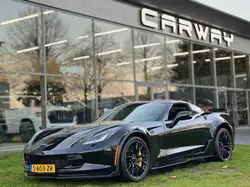16
12/2005
126.297 km
Benzine
297 kW (404 PK)
Xenon verlichting, Getinte ramen, Navigatiesysteem, Boordcomputer, Stoelverwarming, Climate Control
28
01/2016
22.972 km
Benzine
485 kW (659 PK)
PRIJSVERGELIJKING DOOR ONS: 9.9
50
10/1992
82.935 km
Benzine
225 kW (306 PK)
25
07/2005
89.411 km
Benzine
297 kW (404 PK)
Particulier NL-2141DA Vijfhuizen
18
01/2001
1.500 km
Benzine
368 kW (500 PK)
Particulier NL-1851XG Heiloo
28
06/1987
99.999 km
Benzine
169 kW (230 PK)
VS-Import.nl NL-3247 CL DIRKSLAND
2
08/2005
127.264 km
Benzine
297 kW (404 PK)
Particulier NL-8751TG Zurich
27
06/1975
25.706 km
Benzine
198 kW (269 PK)
HJM Mulder Auto's NL-7331 HK APELDOORN
7
04/1987
62.500 km
Benzine
179 kW (243 PK)
Particulier NL-4533BH Terneuzen
29
05/1998
186.000 km
Benzine
253 kW (344 PK)
Particulier NL-2231jh RIJNSBURG
26
Prijsdaling
04/2018
6.431 km
Benzine
343 kW (466 PK)
Deko Trading B.V. NL-5321 JH HEDEL
8
02/2006
156.427 km
Benzine
294 kW (400 PK)
Particulier NL-5371MK Ravenstein
30
Prijsdaling
01/1978
72.377 km
Benzine
136 kW (185 PK)
Wim de Ruiter Auto's NL-4005 EK TIEL
22
07/1987
96.087 km
Benzine
183 kW (249 PK)
Particulier NL-2498az Den haag
40
02/1979
56.273 km
Benzine
200 kW (272 PK)
AutoMagic NL-2161 WB LISSE
13
11/1991
210.000 km
Benzine
225 kW (306 PK)
Particulier NL-1846lh zuidschermer
29
02/1992
430.356 km
Benzine
225 kW (306 PK)
Neutel Trading NL-7782 PV DE KRIM
8
01/2010
16.777.215 km
Benzine
- kW (- PK)
Route 66 Auctions NL-5145 NA WAALWIJK
30
03/2007
112.223 km
Benzine
297 kW (404 PK)
Autobedrijf Favoriet NL-8171 KH VAASSEN
{"seg":"sport","vat":"0","rnd":"18","price":"1,2,3,4,5,6,7,8,9,10","fr":"1,2,3,4,5,6,7,8,9,10,11","type":"U,N,D,O,J,S","articleType":"C","make":"19","model":"1689","leasing":"false","buyonline":"false","countrySearch":"NL","atsd":"","refactor":"list2021","cockpit":"F"}


















